 The US Court of Appeals ruled that many of Trump’s tariffs are illegal, but Treasury Secretary Bessent expects the Supreme Court to rule otherwise (and he has a backup plan if it doesn’t). In related news: Bessent said Trump may declare a national housing emergency this fall to tackle affordability; lumber futures fell to a four-month low; and US consumer sentiment fell 6% in August. In other Business news: San Group’s credit-protection process requires more time; UK’s Kingspan Timber is closing after 60 years; and wildfires are hurting tourism in Alberta, Saskatchewan and Manitoba.
The US Court of Appeals ruled that many of Trump’s tariffs are illegal, but Treasury Secretary Bessent expects the Supreme Court to rule otherwise (and he has a backup plan if it doesn’t). In related news: Bessent said Trump may declare a national housing emergency this fall to tackle affordability; lumber futures fell to a four-month low; and US consumer sentiment fell 6% in August. In other Business news: San Group’s credit-protection process requires more time; UK’s Kingspan Timber is closing after 60 years; and wildfires are hurting tourism in Alberta, Saskatchewan and Manitoba.
In Forestry/Wildfire news: Ottawa is just over a 10th of the way to is 2 billion tree planting goal; debate continues over proposed changes to the US Roadless Rule; misinformation helped kill Oregon’s wildfire risk map; ENGOs call for an end to native logging in New South Wales, Australia; and wildfire updates from Saskatchewan and Oregon.
Finally, the history and future direction of wood science, and Portland’s proposed mass-timber research and manufacturing campus.
Kelly McCloskey, Tree Frog Editor
 A federal appeals court
A federal appeals court 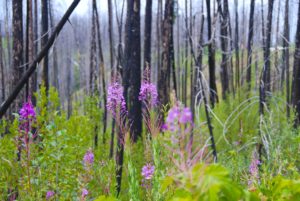 CALGARY — Fewer tourists are coming to Jasper, Alberta than usual this year, but it’s not for a lack of people eager to visit the picturesque Rocky Mountain town. Numbers are about as good as they can be, considering about one-fifth of the town’s overnight accommodations burned when a ferocious wildfire swept through last summer, said Tourism Jasper CEO Tyler Riopel. …As the Jasper recovery continues, tourism operators affected by wildfires elsewhere this year are struggling. Northern Saskatchewan and Manitoba have been particularly hard hit, which has taken a toll on outfitting businesses that cater to hunters and fishers. Roy Anderson, acting CEO of the Saskatchewan Commission of Professional Outfitters, said his group is surveying members to quantify the financial impact. “We’re talking millions of dollars in terms of lost revenue at a minimum,” he said.
CALGARY — Fewer tourists are coming to Jasper, Alberta than usual this year, but it’s not for a lack of people eager to visit the picturesque Rocky Mountain town. Numbers are about as good as they can be, considering about one-fifth of the town’s overnight accommodations burned when a ferocious wildfire swept through last summer, said Tourism Jasper CEO Tyler Riopel. …As the Jasper recovery continues, tourism operators affected by wildfires elsewhere this year are struggling. Northern Saskatchewan and Manitoba have been particularly hard hit, which has taken a toll on outfitting businesses that cater to hunters and fishers. Roy Anderson, acting CEO of the Saskatchewan Commission of Professional Outfitters, said his group is surveying members to quantify the financial impact. “We’re talking millions of dollars in terms of lost revenue at a minimum,” he said.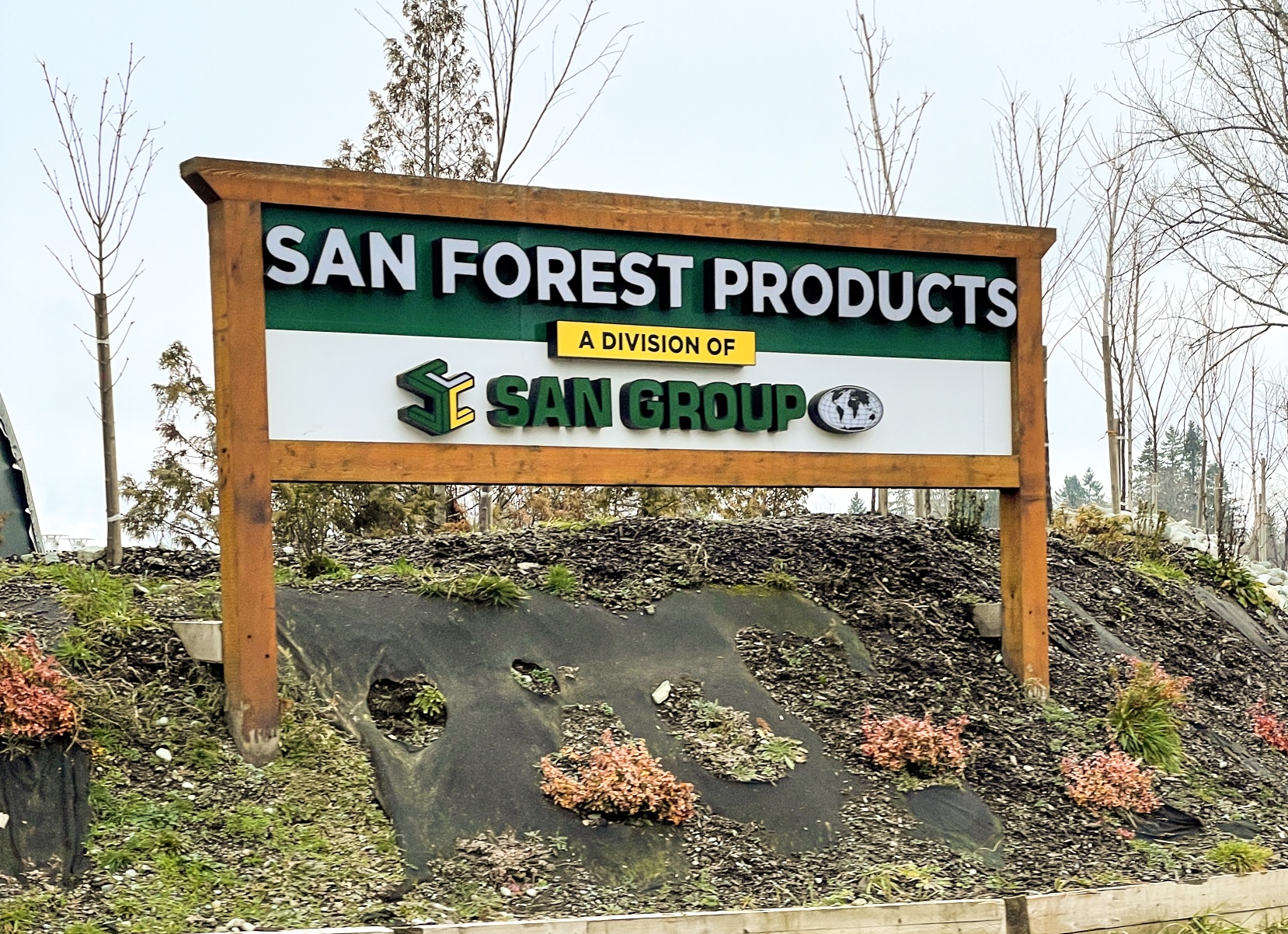 The monitor overseeing the credit-protection process for San Group, a Langley-based forestry company with debts in excess of $150 million, has applied to the courts for an extension of the process in order to complete the sale of the company’s assets. Deloitte Restructuring has asked the courts to extend the process to Oct. 31. It currently expires Sept. 5. …According to the monitor’s ninth report to the courts, filed this week, the sale of three San Group properties has now closed, and only a Langley farm remains of the major assets. The sale of the Coulson Mill in Port Alberni closed June 20 with proceeds of $12.06 million, the Langley mill site closed July 15, netting $12.37 million, and the Port Alberni value-added facility sale closed July 29, netting $8.25 million. On top of that, Tradewest Asset Solutions has now completed the sale of all of San Group’s remaining inventory, which resulted in $1.178 million being added to the pile.
The monitor overseeing the credit-protection process for San Group, a Langley-based forestry company with debts in excess of $150 million, has applied to the courts for an extension of the process in order to complete the sale of the company’s assets. Deloitte Restructuring has asked the courts to extend the process to Oct. 31. It currently expires Sept. 5. …According to the monitor’s ninth report to the courts, filed this week, the sale of three San Group properties has now closed, and only a Langley farm remains of the major assets. The sale of the Coulson Mill in Port Alberni closed June 20 with proceeds of $12.06 million, the Langley mill site closed July 15, netting $12.37 million, and the Port Alberni value-added facility sale closed July 29, netting $8.25 million. On top of that, Tradewest Asset Solutions has now completed the sale of all of San Group’s remaining inventory, which resulted in $1.178 million being added to the pile.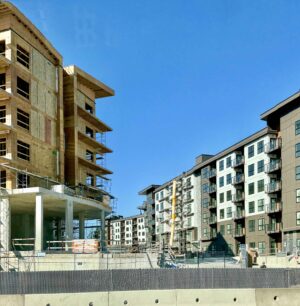 Treasury Secretary Scott Bessent said the Trump administration may declare a national housing emergency this fall as the White House looks to highlight key issues for midterm campaign voters. …Bessent said housing affordability would be a critical leg of Republicans’ 2026 midterm election platform. Bessent declined to list any specific actions the president may take, but he suggested that administration officials are directly studying ways to standardize local building and zoning codes and decrease closing costs. President Trump has repeatedly used emergency declarations to avoid having to send legislation to Congress for approval. Some of those, particularly the emergency law he cited to institute his tariff regime, have faced pushback in federal court. …Trump also spoke out on the issue during the campaign and said he wants to open up federal land for housing development and pledged to help with affordability by eliminating regulations.
Treasury Secretary Scott Bessent said the Trump administration may declare a national housing emergency this fall as the White House looks to highlight key issues for midterm campaign voters. …Bessent said housing affordability would be a critical leg of Republicans’ 2026 midterm election platform. Bessent declined to list any specific actions the president may take, but he suggested that administration officials are directly studying ways to standardize local building and zoning codes and decrease closing costs. President Trump has repeatedly used emergency declarations to avoid having to send legislation to Congress for approval. Some of those, particularly the emergency law he cited to institute his tariff regime, have faced pushback in federal court. …Trump also spoke out on the issue during the campaign and said he wants to open up federal land for housing development and pledged to help with affordability by eliminating regulations.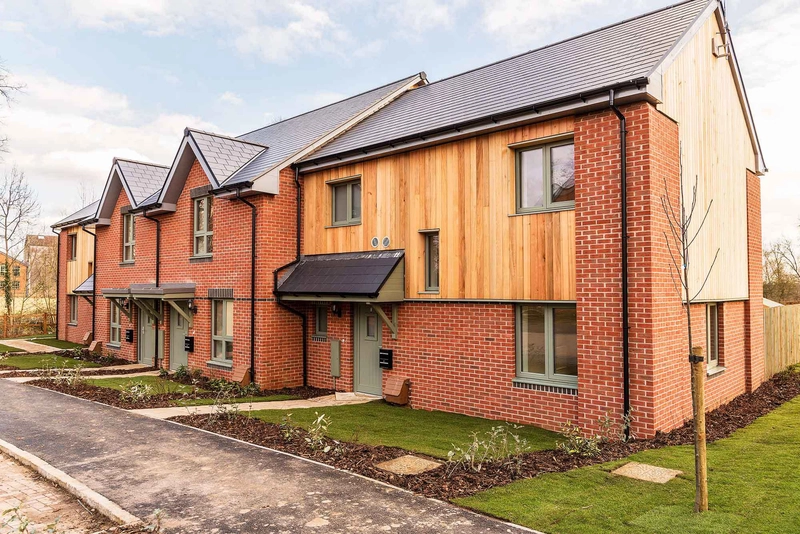
 Lumber futures fell to $550 per thousand board feet in September, the lowest in nearly four months, amid softer demand for new home building and ample supply. US building permits fell 2.2% in July to a seasonally adjusted annualized rate of 1.362 million, the lowest since June 2020. Although the market anticipates a potential rate cut in September, rates are expected to remain restrictive, and high inflation expectations are expected to support long-maturity yields, which dictate mortgage costs. Seasonal slowdown in construction is set to magnify the drop in housing construction. On the supply side, Canadian mills continue to push large volumes of surplus lumber into the US market, far exceeding actual demand and creating an oversupply situation. Additionally, ongoing tariff issues between the US and Canada add further uncertainty, as potential changes in trade policy could significantly affect US lumber prices.›
Lumber futures fell to $550 per thousand board feet in September, the lowest in nearly four months, amid softer demand for new home building and ample supply. US building permits fell 2.2% in July to a seasonally adjusted annualized rate of 1.362 million, the lowest since June 2020. Although the market anticipates a potential rate cut in September, rates are expected to remain restrictive, and high inflation expectations are expected to support long-maturity yields, which dictate mortgage costs. Seasonal slowdown in construction is set to magnify the drop in housing construction. On the supply side, Canadian mills continue to push large volumes of surplus lumber into the US market, far exceeding actual demand and creating an oversupply situation. Additionally, ongoing tariff issues between the US and Canada add further uncertainty, as potential changes in trade policy could significantly affect US lumber prices.›
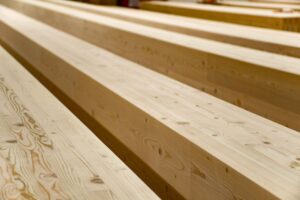
 This overview traces the modern history of wood science and technology, particularly from the European perspective. It begins with the early forestry schools in 18th-century Germany, which influenced the founding of similar institutions worldwide. These schools introduced technical subjects, including wood physics, to meet industrial demand, especially from the mining sector. Before formal studies began, early research on wood properties, including moisture relations and strength, appeared in encyclopaedias. With the Industrial Revolution, interest in wood as a construction material grew, linking wood research to engineering and materials science. In the early 20th century, dedicated wood technology institutes marked the birth of wood science as a distinct discipline. …The future of wood science lies in sustainability and the efficient use of resources. As interest in renewable, bio-based alternatives to steel and concrete grows, further research on wood functionalisation and modification will be vital.
This overview traces the modern history of wood science and technology, particularly from the European perspective. It begins with the early forestry schools in 18th-century Germany, which influenced the founding of similar institutions worldwide. These schools introduced technical subjects, including wood physics, to meet industrial demand, especially from the mining sector. Before formal studies began, early research on wood properties, including moisture relations and strength, appeared in encyclopaedias. With the Industrial Revolution, interest in wood as a construction material grew, linking wood research to engineering and materials science. In the early 20th century, dedicated wood technology institutes marked the birth of wood science as a distinct discipline. …The future of wood science lies in sustainability and the efficient use of resources. As interest in renewable, bio-based alternatives to steel and concrete grows, further research on wood functionalisation and modification will be vital. 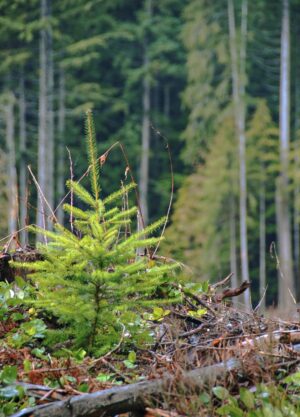 The Government of Canada says it is just over a 10th of the way to its goal of planting two billion trees across the country. Launched in 2021, Canada’s 2 Billion Trees program has reached the milestone of 228 million trees planted, with agreements already in place to plant a total of nearly one billion within the coming years. As of June, 11 provinces and territories, 58 Indigenous partners, 30 municipalities and 88 non-governmental organizations has signed or are negotiating tree-planting agreements. The program aims to protect crucial wildlife habitat, restore areas impacted by wildfires and sequester carbon. …Some of these initiatives include creating at least 10 new national parks and marine conservation areas and 15 new urban parks, as well as designating 30 per cent Canada’s land and water as conservation areas by 2030. The federal government has also committed to reach an emissions reduction target of 40 per cent below 2005 levels by 2030 and net-zero emissions by 2050.
The Government of Canada says it is just over a 10th of the way to its goal of planting two billion trees across the country. Launched in 2021, Canada’s 2 Billion Trees program has reached the milestone of 228 million trees planted, with agreements already in place to plant a total of nearly one billion within the coming years. As of June, 11 provinces and territories, 58 Indigenous partners, 30 municipalities and 88 non-governmental organizations has signed or are negotiating tree-planting agreements. The program aims to protect crucial wildlife habitat, restore areas impacted by wildfires and sequester carbon. …Some of these initiatives include creating at least 10 new national parks and marine conservation areas and 15 new urban parks, as well as designating 30 per cent Canada’s land and water as conservation areas by 2030. The federal government has also committed to reach an emissions reduction target of 40 per cent below 2005 levels by 2030 and net-zero emissions by 2050.
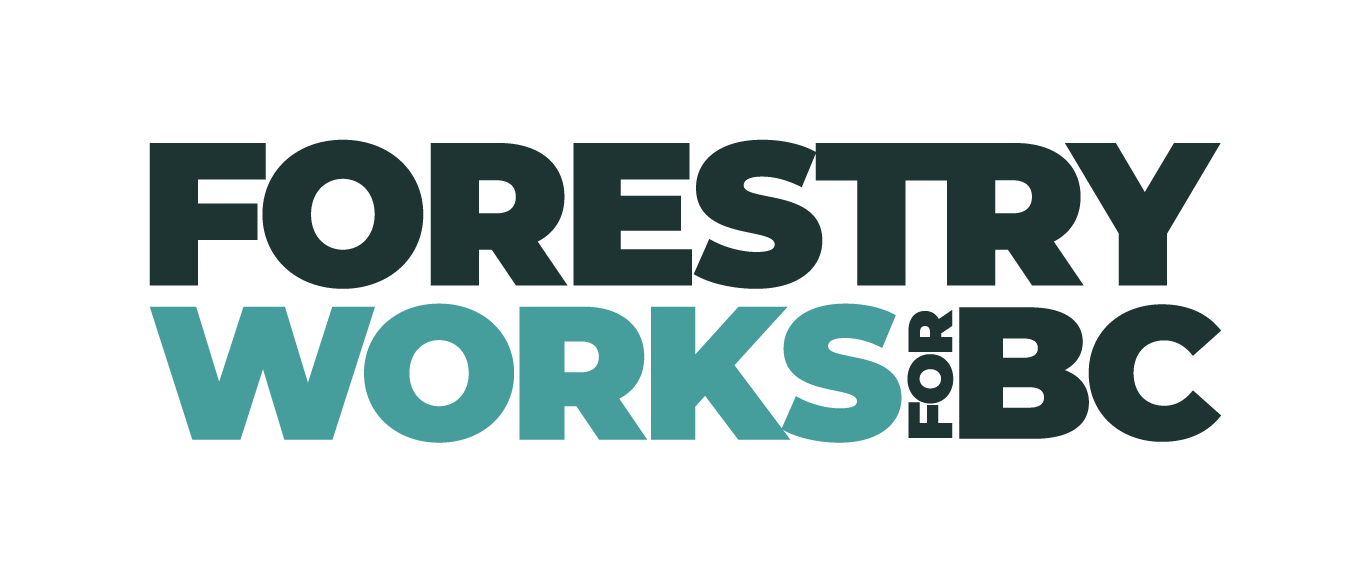
 Local forests like Cai Creek, rich in biodiversity, cultural heritage, and tourism value, are disappearing across the province. …The at-risk cutblock is situated in the Cai Creek drainage area, just east of Crowsnest Highway 3, above Ootischenia.The hike was led by Matt Casselman, a local biologist and founder of the Save Cai Creek campaign. …“Cai Creek is a mostly intact watershed with no resource roads or recent logging, something that is increasingly rare in the West Kootenays. Intact forests should be protected because they offer areas of refuge for wildlife, and are more resilient to climate change,” says Casselman. …“The BCTS logging and road plans for Cai Creek extend across the whole drainage and will irreversibly disrupt the forest and its ecosystems,” says Casselman. …However, Cai Creek is not considered old growth by the Ministry of Forests and has no protections from logging.
Local forests like Cai Creek, rich in biodiversity, cultural heritage, and tourism value, are disappearing across the province. …The at-risk cutblock is situated in the Cai Creek drainage area, just east of Crowsnest Highway 3, above Ootischenia.The hike was led by Matt Casselman, a local biologist and founder of the Save Cai Creek campaign. …“Cai Creek is a mostly intact watershed with no resource roads or recent logging, something that is increasingly rare in the West Kootenays. Intact forests should be protected because they offer areas of refuge for wildlife, and are more resilient to climate change,” says Casselman. …“The BCTS logging and road plans for Cai Creek extend across the whole drainage and will irreversibly disrupt the forest and its ecosystems,” says Casselman. …However, Cai Creek is not considered old growth by the Ministry of Forests and has no protections from logging.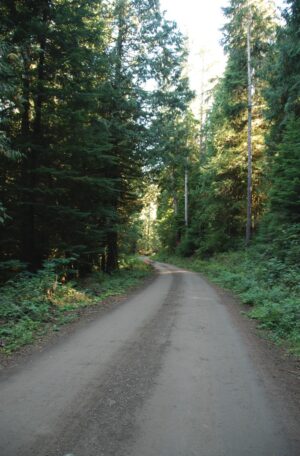 Under the 2001 Roadless Rule enacted by President Bill Clinton, millions of acres of roadless areas on national forests across the country are conserved, protecting vital habitats and watersheds. A “blank spot on a map,” in the words of the naturalist Aldo Leopold, is increasingly valuable in our urbanizing society. …The current administration is right to look for ways to address the growing wildfire threat in these areas. But instead of doing away with the Roadless Rule, the White House should look to a simple way to make our forests more resilient to wildfire without compromising the other benefits. …One way to allow forest thinning and prescribed burns to reduce the wildfire threat is to amend the roadless rule… to permit temporary roads in roadless areas that are near neighborhoods along the wildland-urban interface to allow for forest thinning or other ecological restoration. [to access the full story a NY Times subscription is required]
Under the 2001 Roadless Rule enacted by President Bill Clinton, millions of acres of roadless areas on national forests across the country are conserved, protecting vital habitats and watersheds. A “blank spot on a map,” in the words of the naturalist Aldo Leopold, is increasingly valuable in our urbanizing society. …The current administration is right to look for ways to address the growing wildfire threat in these areas. But instead of doing away with the Roadless Rule, the White House should look to a simple way to make our forests more resilient to wildfire without compromising the other benefits. …One way to allow forest thinning and prescribed burns to reduce the wildfire threat is to amend the roadless rule… to permit temporary roads in roadless areas that are near neighborhoods along the wildland-urban interface to allow for forest thinning or other ecological restoration. [to access the full story a NY Times subscription is required]
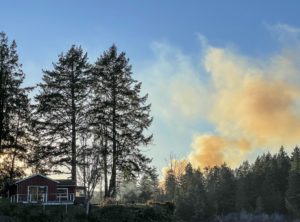 A year after Oregon endures its most destructive fire season on record in 2020, state lawmakers order a map estimating the wildfire risk for every property in the state. It’s the kind of rating now available on real estate sites like Zillow. The state wants to use the results to decide where it will apply forthcoming codes for fire-resistant construction and protections around homes. Around the same time, insurance companies start dropping Oregon homeowners’ policies and raising premiums to limit future losses, much as they have done in other disaster-prone states. Insurers have their own sophisticated risk maps to guide them, but some brokers instead tell homeowners the blame lies with the map. The belief gets treated as fact both on social media and in mainstream news — even though insurers and regulators say it’s not true. …By the time the state pulls back the map, the myths about it have gained so much momentum there’s no stopping them.
A year after Oregon endures its most destructive fire season on record in 2020, state lawmakers order a map estimating the wildfire risk for every property in the state. It’s the kind of rating now available on real estate sites like Zillow. The state wants to use the results to decide where it will apply forthcoming codes for fire-resistant construction and protections around homes. Around the same time, insurance companies start dropping Oregon homeowners’ policies and raising premiums to limit future losses, much as they have done in other disaster-prone states. Insurers have their own sophisticated risk maps to guide them, but some brokers instead tell homeowners the blame lies with the map. The belief gets treated as fact both on social media and in mainstream news — even though insurers and regulators say it’s not true. …By the time the state pulls back the map, the myths about it have gained so much momentum there’s no stopping them. 

